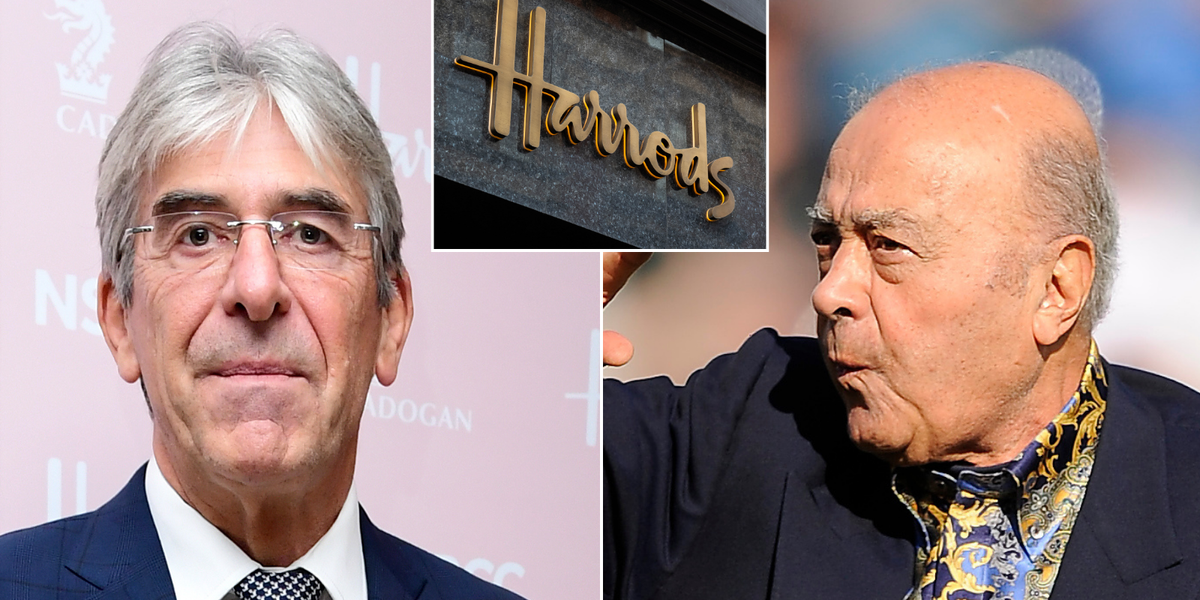Harrods and the Legacy of Mohamed Al Fayed: A Culture of Secrecy and Intimidation
In a shocking revelation that has sent ripples through the luxury retail world, Harrods’ managing director, Michael Ward, has publicly acknowledged the department store’s failure to protect its staff from the alleged "toxic culture" fostered by its former owner, Mohamed Al Fayed. The allegations against Al Fayed, who passed away in 2023 at the age of 94, include accusations of rape and sexual assault by dozens of women over a span of at least 20 years. This article delves into the implications of these revelations, the responses from Harrods’ leadership, and the broader cultural issues at play.
Acknowledgment of Failure
In a heartfelt written statement, Ward expressed his horror at the recent allegations against Al Fayed, emphasizing the need for accountability. "We failed our colleagues, and for that, we are deeply sorry," he stated, reflecting on the painful experiences shared by survivors of Al Fayed’s alleged misconduct. Ward, who worked under Al Fayed from 2006 until the change of ownership in 2010, insisted that he was unaware of any criminal behavior during his tenure. He noted that while rumors of Al Fayed’s behavior circulated, no formal allegations were ever brought to his attention.
The Culture of Secrecy
Ward’s statement sheds light on the environment that Al Fayed cultivated during his ownership of Harrods. He described it as a "toxic culture of secrecy, intimidation, fear of repercussion, and sexual misconduct." This culture not only silenced victims but also created an atmosphere where misconduct could thrive unchecked. The implications of such a culture extend beyond Harrods, suggesting a systemic issue within organizations led by powerful figures who operate with little oversight.
The Allegations Come to Light
The allegations against Al Fayed gained significant media attention following a BBC documentary that identified at least 20 alleged victims, with five claiming they had been raped. This documentary served as a catalyst for the public discourse surrounding the issue, prompting calls for accountability and justice for the victims. In response to the growing scrutiny, the Metropolitan Police confirmed that they had investigated three previously unknown allegations against Al Fayed, although these did not result in charges.
Harrods Today: A New Era
In the wake of these revelations, Ward emphasized that today’s Harrods is "unrecognizable" compared to the establishment under Al Fayed’s leadership. He announced the initiation of a settlement process and an independent review to address the allegations and ensure that such a culture could never take root again. This commitment to change is crucial for rebuilding trust with employees and the public alike.
The Call for Transparency
As the investigation unfolds, there have been increasing calls from alleged victims’ lawyers for Ward and other former executives to disclose what they knew about Al Fayed’s behavior. The demand for transparency is not just about accountability for past actions but also about ensuring that similar abuses do not occur in the future. The willingness of current leadership to confront the past is essential for fostering a safe and respectful workplace.
Moving Forward
Ward has indicated that he will step back from several charity roles while the independent review is conducted, demonstrating a commitment to prioritizing the investigation and the voices of the victims. This step is a recognition of the gravity of the situation and the need for a thorough examination of the culture that allowed such behavior to persist.
Conclusion
The allegations against Mohamed Al Fayed have opened a Pandora’s box of discussions about workplace culture, accountability, and the responsibilities of leadership. As Harrods navigates this challenging period, the focus must remain on supporting the victims and ensuring that the lessons learned lead to meaningful change. The legacy of Al Fayed’s tenure serves as a stark reminder of the importance of vigilance in protecting employees and fostering an environment where all individuals can feel safe and respected. The road ahead will require courage, transparency, and a commitment to dismantling the remnants of a toxic culture that should never have been tolerated.
